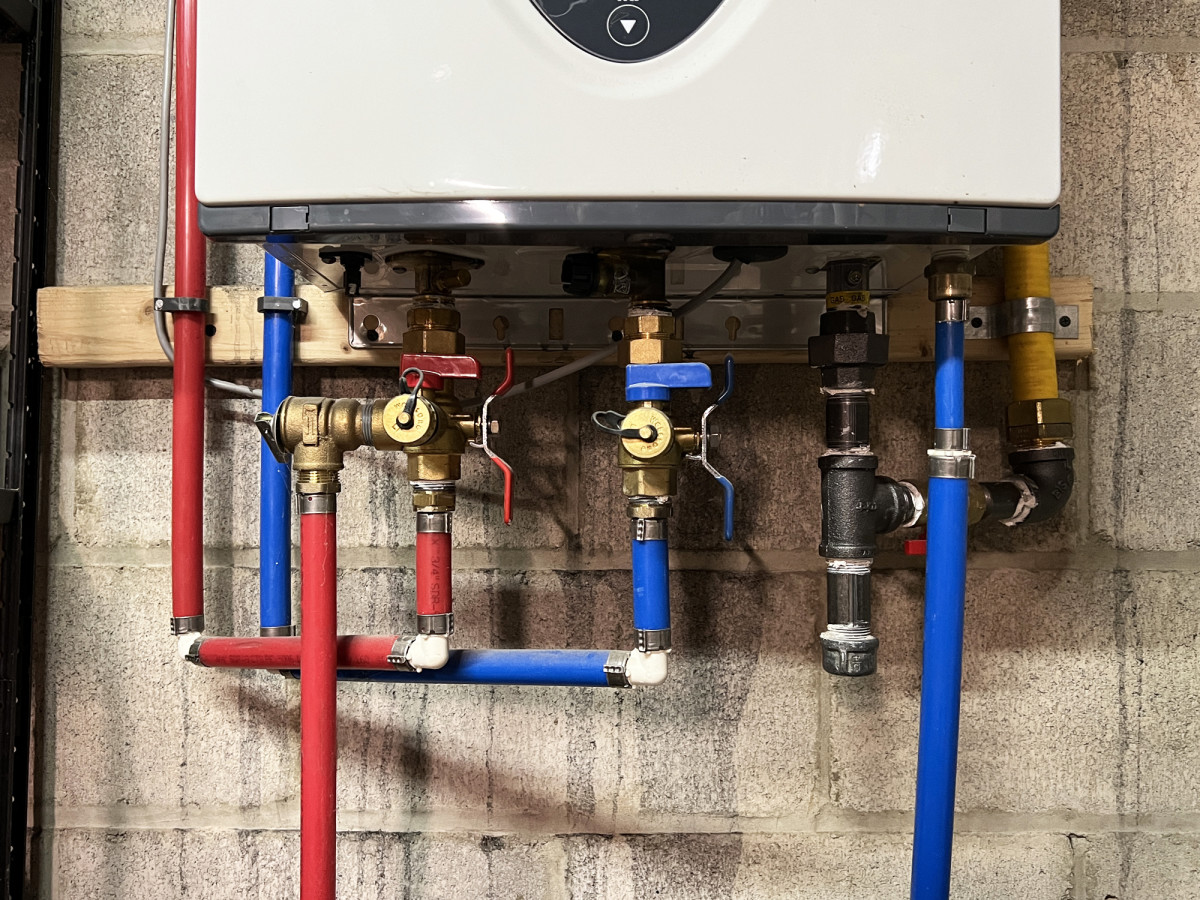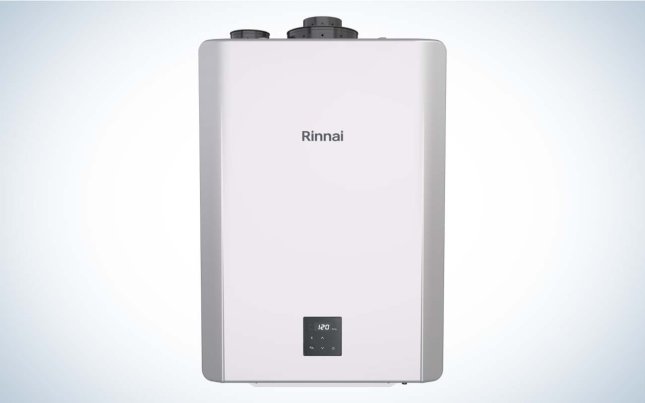Why Instant Water Heaters Grant Valuable Benefits
Why Instant Water Heaters Grant Valuable Benefits
Blog Article
What are your beliefs on Pros and Cons of Tankless Water Heater?

In a globe where benefit and efficiency reign supreme, it's not a surprise that home owners are continuously in search of smarter ways to manage their home's energy usage and comfort. One advancement that has actually continuously obtained appeal is the tankless hot water heater. Yet what exactly makes these systems attract attention from the standard tank-based designs a lot of us grew up with? Let's dive in and discover the benefits of tankless water heaters, assisting you determine if it's time to make the button in your house.
Intro
Image this: you enter the shower after a long day, expecting a calming waterfall of hot water, only to be greeted by icy droplets because the last person utilized all of it up. Noise familiar? Standard hot water heater store a set quantity of hot water, meaning you go to the grace of that tank's supply. Tankless systems, on the other hand, warmth water on demand. No more going out mid-shower, no more wrestling with timetables just to make certain hot water is readily available.
Comprehending Tankless Water Heaters
What Are Tankless Hot Water Heater?
Tankless water heaters, occasionally known as on-demand or instantaneous water heaters, supply hot water only as it's required. As opposed to storing gallons of pre-heated water, these systems kick right into activity the moment you activate the faucet. Water passes through a warm exchanger, heating up in real-time, indicating you obtain an undisturbed flow of warm water without the requirement for a large tank sitting idly by.
Exactly how Do They Differ from Typical Equipments?
Standard heating units hold a tank of hot water, using energy to keep that tank at a consistent temperature. Tankless units get rid of the standing supply, reducing lost energy and the bulky footprint of a big cylinder. Basically, you're updating from a "accumulation" mindset to a "made-to-order" method.
Typical Kinds Of Tankless Devices
Tankless water heaters normally can be found in 2 varieties: gas and electric. Gas models have a tendency to provide higher flow rates, suitable for larger households, while electrical designs commonly offer smaller sized homes and are usually easier to set up. Additionally, some systems are developed for point-of-use (offering one fixture) while others can manage the whole home's hot water needs.
Secret Advantages of Tankless Hot Water Heater
Energy Effectiveness and Price Savings
No more heating a titan container's worth of water and keeping it cozy throughout the day. Tankless heating systems reduce standby energy losses, which can reduce energy expenses. While the first expense could be greater, the lasting savings frequently warrant the investment.
3. Space-Saving Layout
If your home is short on storage, removing the bulky container maximizes beneficial room. Tankless systems are small and can usually be installed on walls, hidden in edges, or mounted in tight utility closets without grabbing all of the entire area.
4. Longer Life expectancy
A well-maintained tankless hot water heater can outlast its tank-based relative. Conventional containers might last 10-15 years, while tankless designs can maintain chugging along for 20 years or even more, making them a solid financial investment over time.
1. Limitless Warm Water Supply
Ever had to set up showers so every person gets their fair share of warm water? With tankless, that comes to be a distant memory. As long as the heating system's circulation capacity isn't exceeded, you can take back-to-back showers without turning into a popsicle.
5. Improved Water High Quality
Keeping water in a storage tank can often result in sediment accumulation or a slightly "off" taste. With tankless systems, fresh water is heated on the spot, reducing the chances of debris buildup and potentially providing cleaner-tasting water.
Factors to consider Before Changing
Though the advantages are compelling, it's a good idea to consider a few elements prior to totally committing.
Assessing Your Home's Water Usage Patterns
If your household at the same time uses numerous components with high hot water need, make certain the unit's circulation rate meets your needs. Knowing your usage patterns assists you select the appropriate size and type of tankless heating unit.
Maintenance and Care Tips
Tankless systems are reasonably reduced maintenance, however they aren't set-it-and-forget-it devices.
Normal Cleansing and Descaling
Hard water minerals can develop in the warm exchanger, influencing efficiency. Regular descaling (often suggested every year) maintains the device going for peak performance.
Yearly Specialist Evaluations
A yearly checkup from an expert makes sure small problems are caught early. They'll evaluate the unit's efficiency, look for leaks, and aid maintain ideal performance.
First Financial Investment Expenses
Tankless heating systems commonly come with a greater in advance price. In between the unit itself and possible installment alterations, the initial cost may offer you sticker label shock. Yet remember to view it as a lasting financial investment.
Installation Requirements
Relying on your home's framework, you may require extra electric ability or gas line upgrades. Ensure you recognize the installation demands and speak with a specialist to stay clear of surprises.
Guaranteeing Correct Air Flow
For gas versions, correct air flow is essential to securely expel exhaust gases. See to it airing vent systems are tidy and properly set up to prevent any possible safety and security threats.
Contrasting Different Brands and Models
Not all tankless hot water heater are created equal.
Investigating Reliable Manufacturers
Look for trusted brands with a background of generating high quality units. A dependable maker commonly offers far better client assistance and longer guarantees.
Installation: Do It Yourself or Professional?
While some home owners enjoy taking on jobs themselves, tankless installment might not be the very best time to burst out the tool kit.
Pros and Cons of DIY Installment
A DIY set up can conserve money, however it features risks. Inaccurate installation can result in inefficiency or security concerns. If you come in handy and have experience, it could be viable-- however proceed with care.
Checking Out Reviews and Customer Feedback
Customer evaluations and feedback from next-door neighbors or pals that have gone tankless can use beneficial insights. Often, real-life experiences can be extra telling than marketing sales brochures.
When to Call a Specialist Plumbing Professional
For many, calling a pro makes sure every little thing's done correctly. A specialist plumbing technician understands local codes, sizing needs, and venting specifications, minimizing the threat of incidents.
Making best use of Efficiency
You've purchased a tankless system-- currently optimize its efficiency.
Ideal Temperature Level Settings
Most individuals set their systems between 120-140 F. Changing the temperature level can enhance comfort and savings. Experiment to discover a pleasant place that does not squander power.
Pairing with Low-Flow Fixtures
Wish to extend your unit's capacities? Think about setting up low-flow showerheads and faucets. They reduce water usage, permitting your tankless system to provide a constant stream of warm water without stressing.
Environmental Influence
Tankless hot water heater straighten with greener living objectives.
Minimized Carbon Impact
By utilizing much less power and just home heating water as required, tankless systems can reduce your home's carbon footprint, minimizing your ecological effect.
Conserving Natural Resources
Less energy usage and much less thrown away hot water translate right into fewer natural deposits being used, an ecological win-win.
That Profits A Lot Of from Tankless Heating systems?
The charm of tankless heating units is that they can fit a variety of houses.
Big Families vs. Solitary Occupants
Large households could love the limitless hot water supply, while single owners appreciate the energy cost savings from not warming a whole tank for simply one person's early morning shower.
Property Owners with Minimal Space
If your home is short on square video footage, shedding the bulky storage tank maximizes room for other essentials-- or possibly just more breathing space.
Eco-Conscious Customers
Going tankless aligns with eco-friendly values, guaranteeing you're not squandering power or resources.
Future Fads in Tankless Water Heaters
The world of home devices is ever-evolving, and tankless water heaters are no exception.
Improvements in Innovation
R&D is frequently improving warmth exchangers, making systems more effective and durable. Future models could be also quieter, a lot more portable, and far better fit for varying climates.
Smart Home Assimilation
Visualize changing your water heater's temperature level using an application or receiving upkeep notifies on your phone. As smart home tech developments, we'll see even more connectivity and benefit.
Final thought
Picking a tankless hot water heater is more than simply upgrading your home's hot water system; it's purchasing long-term convenience, energy performance, and a greener lifestyle. By considering your home's water use, bearing in mind setup needs, and committing to routine maintenance, you can appreciate a constant stream of warm water without the luggage of a large storage tank. As modern technology advances, you can anticipate even smarter, more reliable tankless options that not just make your life much easier yet additionally benefit the planet.
Pros and Cons of Tankless Water Heaters
Tankless Water Heater Pros
Saves Energy: Simply put, you re spending less energy to create hot water, so your total carbon footprint goes down, not to mention your bills. Lasts Longer Than Storage Tanks: Storage tank units need to be replaced every 15 years or so. But tankless units? They can last for 30 years before they give out on you. Constant Hot Water: Need to take a shower and don t want the water running cold? Awesome it won t. The water will stay hot the entire time because it creates hot water on demand. Saves You Money: Less water usage equals less money. Beyond that, you re not paying to keep water hot 24/7. Those savings add up quickly. Better for the Environment: Less water waste is better for everyone. It saves you money, but it s also environmentally conscious at the same time. Tankless Water Heater Cons
It Can Take a Minute: Depending on your specific unit and its placement, it can take anywhere from 10 seconds to 2 minutes to fully heat up. Because there s no storage tank, it heats water as you need it. Upfront Purchase Price: While we talked about their longevity, there s sticker shock when you look at brand-new tankless units to install. It pays for itself, but it s still a big chunk of change at first. Has its Limits: If you run multiple appliances at once, such as the dishwasher, washing machine, and maybe you take a shower at the same time, there might not be enough hot water. https://www.airsouthnow.com/blog/water-heater-service/pros-and-cons-of-tankless-water-heaters/

Hopefully you liked our excerpt on Pros and Cons of Tankless Water Heater. Thank you so much for taking a few minutes to read our piece. Feel free to take the opportunity to share this page if you liked it. Thanks a lot for your time. Come back soon.
Get Quote Now Report this page